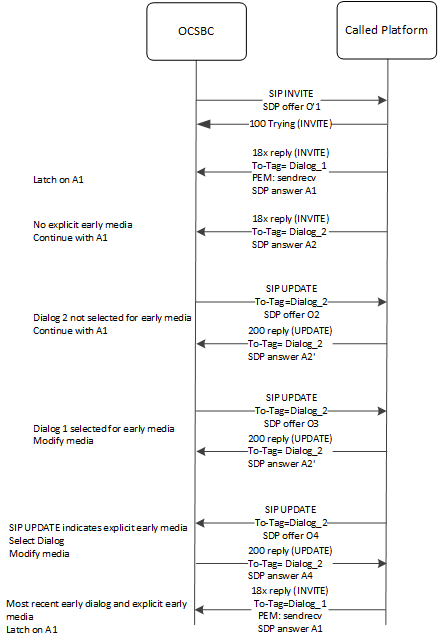PEM Header Support for Early Dialogs
PEM support on the SBC is fully documented in the section P-Early-Media SIP Header Support. Note that PEM header support is disabled by default, which causes the SBC to ignore all PEM headers and not enforce directionality. Within the context of multiple dialogs, an additional behavior supports early multiple dialog merging.
When you set the sip-interface, p-early-media-header parameter to support, you enable PEM processing in replies without interfering with the signaling, thereby supporting multiple early dialog merge. This attribute value causes the SBC to perform the following:
- The SBC enforces received PEM from trusted sources if they are not restricted by some other condition.
- The SBC does not modify PEM direction; the SBC ignores the direction attribute on the applicable sip-interface.
- If a PEM header is absent from a SIP reply, the SBC does not add it.
- If PEM support is not advertised in the initial SIP INVITE, the SBC adds it.
- The SBC forwards PEM in SIP replies to any calling party (trusted or untrusted) that advertises PEM support.
Regarding the early dialog media selection process, the SBC is expected to retain only the last received early media with P-Early-Media set to sendonly or sendrecv. This support extends to call flows that include many-to-many dialog presentation, within which both the UAC and UAS initiate multiple dialogs, using UPDATES for example to trigger a media change. The call flow below presents an example of the applicable behavior.
